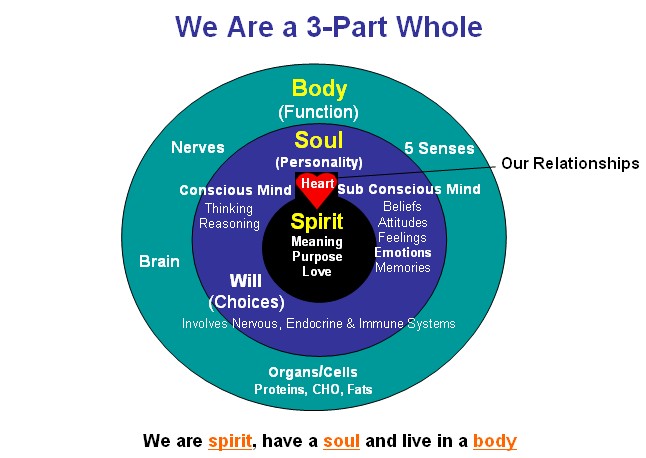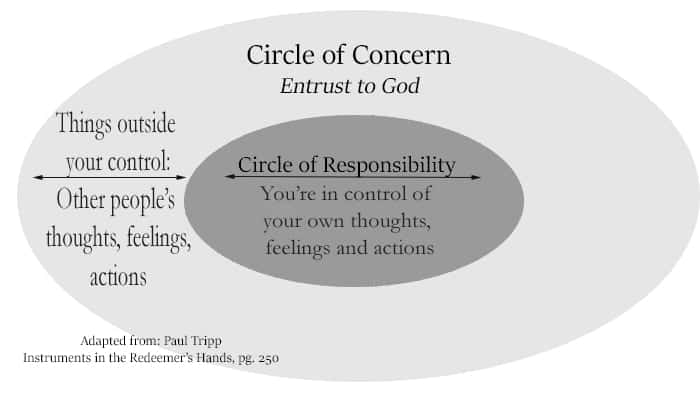MY FLESH WANTS WHAT it wants. It’s that simple. It craves. Many needs of the flesh are acceptable; critical to survival. Absolutely necessary. The flesh craves water, food, warmth, air. It longs to be sustained; indeed, it is sustainable. It is a vessel. It is a portal. It can be a tool in God’s hands or a weapon in Satan’s hands. Clearly, the apostle Paul understood wrestling with the flesh. His lesson in Romans 7 is critical to understanding our own struggles. It is not a “loophole,” but a battle plan. It is the theological baseline we must learn in order to become perfect as our Father in heaven is perfect (see Matt. 5:48). This is the very fabric of spiritual progress. As I will outline below, we cannot control our flesh with our flesh. More importantly, we cannot leave our flesh, or our innate sin nature, at the cross. LORD knows I’ve tried. This is the wrong approach; one that is doomed to fail. We remain in our fleshly body wherever we go. Accordingly, we take with us both the desire to obey God and the desire to fulfill our sinful passions.
Romans 7:5 says, “For while we were living in the flesh, our sinful passions, aroused by the law, were at work in our members to bear fruit for death.”
We need to recognize and live in the solution and not the problem. I believe this is Galatians 5:16-18 in practice. Paul writes, “But I say, walk by the Spirit, and you will not gratify the desires of the flesh.” This is a very powerful remark. Next, Paul tells us exactly why this is paramount to our Christian lifestyle: “For the desires of the flesh are against the Spirit, and the desires of the Spirit are against the flesh, for these are opposed to each other, to keep you from doing the things you want to do” (5:19). In the flesh, we are sold under sin, but in the Spirit we are free from the Law of sin and death (see Rom. 7:14; 8:2). When we walk in the flesh—especially when we try to tame the flesh by the flesh, under our own willpower—we actually strengthen the flesh by giving it priority.
Why Not?
Jon Snyder writes, “I fear we’ve bred a generation of believers whose souls are fixated in the way they shouldn’t go. My personal experience and the experience I have ministering to men is that most Christians are inherently focused on the nots and don’ts. We are acutely aware of what we shouldn’t be doing, what we shouldn’t be thinking, how we don’t measure up, what we don’t have, how we fall short, what we haven’t done, what we aren’t doing, etc.”(1) This has also been my experience. Refreshingly, Snyder tells us God is not interested in what we’re not doing. Instead, He is interested in who we are. I believe Snyder is saying God knows we cannot “not” sin; that we cannot please Him by “not” doing fleshly things. He knows it is impossible for us, while in the flesh, to not do things of the flesh. We need to grasp Paul’s lesson: “For I do not understand my own actions. For I do not do what I want, but I do the very thing I hate” (Rom. 7:15) (emphasis mine). Paul cannot “not do.”
Of course, this is not the end of it. Instead of failing constantly at “not doing,” we need to change our focus. The Serenity Prayer is recited in AA meetings worldwide. I want to share it here because it is spot-on regarding what we are discussing. “God, grant me the serenity to accept the things I cannot change, the courage to change the things I can, and the wisdom to know the difference.” Consider the first part of the prayer: there are things we cannot change. AA is suggesting we stop trying to fight against those things we must accept. Take life as it comes and not as we would have it. The good news is there are things we can change. The prayer suggests we need “courage” to change them. Courage is an amazingly complex word. It means “ability,” “strength,” “resolution,” “spirit,” “tenacity,” “zeal.” In the Old English, “courage” meant “valor, a quality of mind which enables one to meet danger and trouble without fear.”
The Serenity Prayer ends with, “…and the wisdom to know the difference.” The difference between what and what? Foremost, between what we can change and what we must accept that we cannot change. But it also includes what Paul taught regarding an inability to control the flesh. Flesh wants what flesh wants. Flesh is not able to stop itself from being “flesh.” In my struggle to break the habitual sin of watching pornography, I constantly focused on not watching pornography. But guess what my mind was focused on? Yep, pornography! On good days, when I was feeling “spiritual” and was walking with and praising God, my flesh was not craving sexual release. On bad days, however, when “up in my head” and in need of an escape from pain, boredom, poor self-image, my flesh drowned out any thoughts of God. This stopped me from being able to take my thoughts captive to Christ. Ultimately, the committee in my head decided to watch porn “one last time.” The flesh won.
“For if you live according to the flesh you will die, but if by the Spirit you put to death the deeds of the body, you will live” (Rom. 8:13).
We cannot “not,” but that’s not the end of it. Paul admitted, “…it is no longer I who do it, but sin that dwells within me” (Rom. 7:17). But he didn’t stop there. He concluded, “Wretched man that I am! Who will deliver me from this body of death? Thanks be to God through Jesus Christ our Lord! So then, I myself serve the law of God with my mind, but with my flesh I serve the law of sin. There is therefore now no condemnation for those who are in Christ Jesus. For the law of the Spirit of life has set you free in Christ Jesus from the law of sin and death” (Rom. 7:24-8:2). Paul is saying that when we focus on the Law—or obsess over that very thing we do not want to do—it leads to sin. It is the gospel that delivers us from the consequences of sin.
Snyder summarizes this dilemma very well. He writes, “When tempted, ‘Don’t do that! Don’t think that! Don’t watch that! Don’t like that!’ All those sound godly, don’t they? What we’ve been taught as ‘spiritual advice,’ the Bible actually calls carnal thinking. Don’t get me wrong, lust is sin; we just can’t beat it the way we’ve been taught. You see, don’ts have no power against the indulgence of the flesh. They tell you what not to do, but don’t tell you what to do or how to think. They tell you not to think like [the] devil, but don’t teach you how to think like God and see life from His perspective.”(2)
What Then?
Remember the word “courage” in the Serenity Prayer? The above list of definitions for courage includes “…a quality of mind which enables one to meet danger and trouble.” This dovetails nicely with Paul’s teachings: “For the weapons of our warfare are not of the flesh but have divine power to destroy strongholds. We destroy arguments and every lofty opinion raised against the knowledge of God, and take every thought captive to obey Christ” (2 Cor. 10:4-5) (emphasis mine). I am including verse 4 here because of its reference to “strongholds.” In this case, Paul is speaking of mental strongholds which trigger our emotions and drive our decisions. The “quality of mind” we require to courageously and effectively change comes only from Christ.
Joyce Meyer tells us our mind is the leader or forerunner of all actions (see Rom. 8:5). She writes, “Our actions are a direct result of our thoughts.”(3) Meyer defines “stronghold” as “…an area in which we are held in bondage (in prison) due to a certain way of thinking.”(4) Beth Moore says, “Basically, a stronghold is any argument or pretension that sets itself up against the kingdom of God.”(5) Meyer and Moore agree that the primary battlefield is the mind. It is the easiest and most effective way Satan can influence our behavior. I said earlier that we cannot defeat our flesh by focusing on our flesh; zeroing in on the “don’t.” Moore writes, “It is never the will of God for warfare to become our focus. The fastest way to lose our balance in warfare is to rebuke the devil more than we relate to God.”(6)
The ultimate goal is to stand against strongholds whatever they may be, commanding them to bow to the power and authority of Christ Jesus. Paul sets the stage for this battle in 2 Corinthians 10:3-5. Eugene Peterson gives us a unique translation of verses 5 and 6: “We use our powerful God-tools for smashing warped philosophies, tearing down barriers erected against the truth of God, fitting every loose thought and emotion and impulse into the structure of life shaped by Christ. Our tools are ready at hand for clearing the ground of every obstruction and building lives of obedience into maturity.”(7) What a powerful interpretation of Paul’s words! A perfect picture for the common application of his instructions regarding our daily struggles with the flesh and with the “false” narratives we often tell ourselves in order to justify our wayward behavior.
Steven Barto, B.S. Psy., M.A. Theo.
References
(1) Jon Snyder, “How to Overcome the Flesh,” Covenant Eyes (Dec. 6, 2021), accessed June 25, 2022. URL: https://www.covenanteyes.com/2016/06/03/overcome-flesh-walk-by-spirit/
(2) Ibid.
(3) Joyce Meyer, Battlefield of the Mind: Wining the Battle in your Mind (New York, NY: Warner Faith, 1995), 11.
(4) Ibid., 16.
(5) Beth Moore, Praying God’s Word: Breaking Free from Spiritual Strongholds (Nashville, TN: Broadman & Holman, 2000), 3.
(6) Ibid., 7.
(7) Eugene Peterson, The Message//Remix (Colorado Springs, CO: NavPress, 2006), 1700.
Unless otherwise noted, all Scripture references contained herein are from the English Standard Version (ESV).












.jpg?ezimgfmt=rs:382x233/rscb30/ng:webp/ngcb30)




